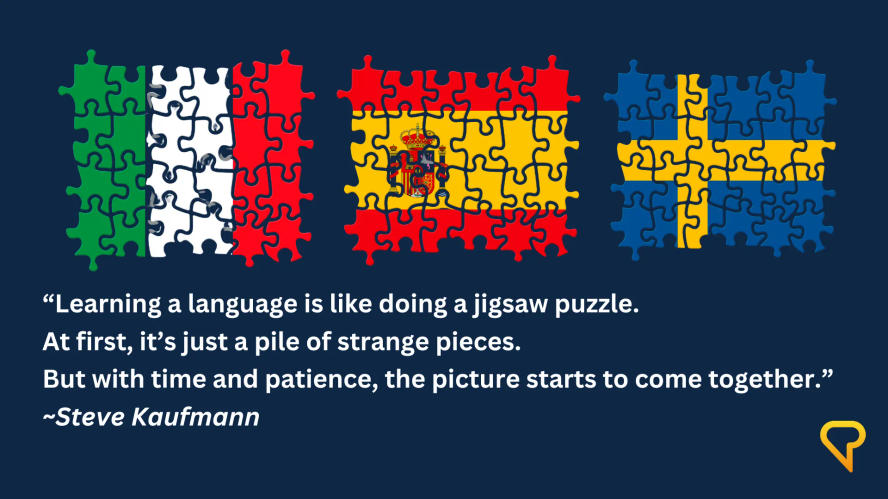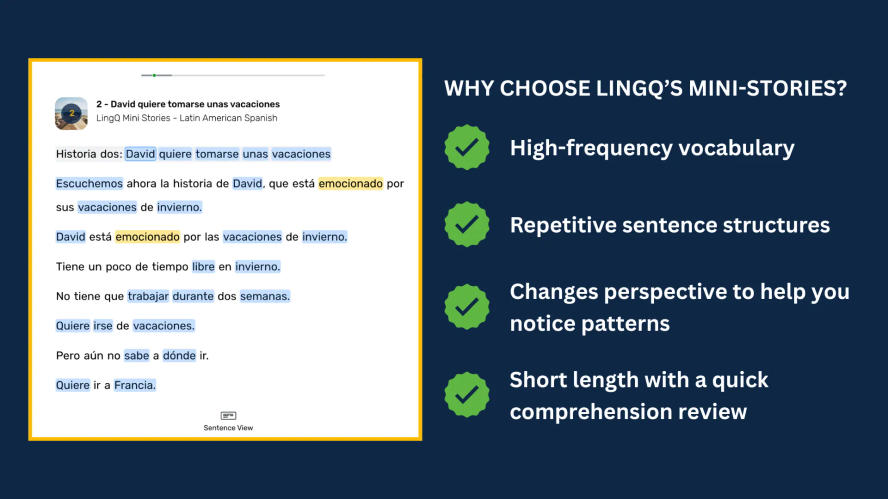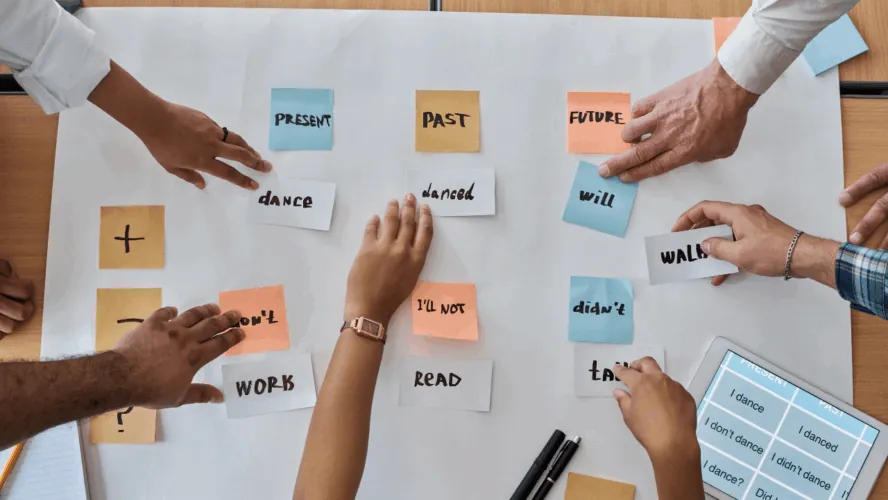Today I want to share how I approach the very beginning of learning a language. First, let’s make an important distinction. The goal should not be to learn a language in three months. For most people, spoken fluency within such a short amount of time is not very realistic. Instead, this is the period in which you need to build the confidence that says: Yes, I can learn this language.
The Comprehensible Input Paradox
We always say language learning is driven by comprehensible input. But here’s the catch: nothing is comprehensible at first. So how do you get a foothold?
It’s like staring at a thousand-piece jigsaw puzzle — just scattered pieces. You can’t see the picture yet. We need to trust that with time and effort, it will come together.

I’ve learned 10 languages in the last 17 years. Many with different writing systems — Korean, Arabic, Persian, Ukrainian — you name it. They all looked like complete gibberish in the beginning.
But I believed I would get there. This belief, this trust in the process, is what sustains you. Here’s what to consider when starting a new language.
1) Repetition and Novelty: The Brain’s Best Friends
As Manfred Spitzer said, we need two things to learn: repetition & novelty.
Early on, the novelty of a new language isn’t very rewarding — it’s all just noise. That’s where repetition becomes your anchor. I take advantage of this and do a lot of repetitive listening and reading in the early stages. Not just once. Dozens of times. I want to build familiarity with the language, and I find that this is easier when I’m already familiar with the material. It’s how your brain starts to fire those neurons and gradually make sense of it all.
My Go-To: The Mini Stories on LingQ
A helpful tip. Whenever I start a new language, I begin with LingQ’s Mini Stories. Why do I find these materials so valuable? Well, they’re not “Hello, my name is…” style dialogues. LingQ’s Mini Stories are actual short stories optimized for the language learner. You’ll be exposed to high repetition, frequently-used vocabulary, and useful sentence structures.

Each word appears multiple times in different forms and tenses. Personally, I go sentence-by-sentence:
- Listen
- Read
- Look up unknown words
- Then listen again
Do I understand it all after one go? Not even close. And that’s okay.
2) You Will Not Progress Linearly
One of the biggest mistakes learners make is thinking they must “master” lesson one before moving on.
You won’t. I don’t.
I move on to lesson two — not because I’ve mastered the first, but because I’m curious about what’s next. That curiosity drives me. Later, I go back to lesson one, and guess what? It starts to make more sense.
3) Repetition Without Burnout
In the first few months, I might listen to the same 10–15 stories 30 or 40 times. But not all at once. Spread it out. Don’t grind. Let the repetition come naturally over time.
The brain doesn’t want to cram. It wants exposure, novelty, and time to absorb.
4) Always Listen Before You Read
This is key.
When you listen first — even without understanding — your brain begins to notice things:
- Where do words begin and end?
- What patterns are emerging?
- What’s that sound I keep hearing?
Listening first allows for your curiosity to kick in. It piques your interest, and you’ll approach reading more readily. Then, when you read the text (especially in sentence mode), you’ve already built some momentum.
Reading becomes less about decoding and more about confirming what your ears have already noticed. Curiosity is the engine of language learning. It’s what gets you through the fog.
5) Get Yourself a Starter Book
Alongside LingQ, I usually buy a starter book — something that is designed for independent learners or emphasizes conversation. Personally, I enjoy a starter book. I don’t drill grammar rules, but rather sit in a comfy chair and flip through. I use this as a reference to get a sense of the structure of the language, confirm something I’ve noticed, etc..
Later on, you’ll look back at that book with a smile. It becomes a symbol of where you started.
The Goal of Month 3: Confidence
If after three months you can say:
“I couldn’t understand a thing when I started. Now, I get the gist of some things.”
That’s huge.
We need to be realistic. After three months, you still forget words. You still struggle to say much. But the puzzle is starting to come together — and that’s what builds motivation to keep going. In these first three months of learning, focus on:
- Repetitive listening and reading
- Letting curiosity guide me
- Avoiding perfectionism
Let me know how it goes for you. Thanks for reading, and happy learning!









comments on “Learn a Language in 3 Months? Here’s the Truth”